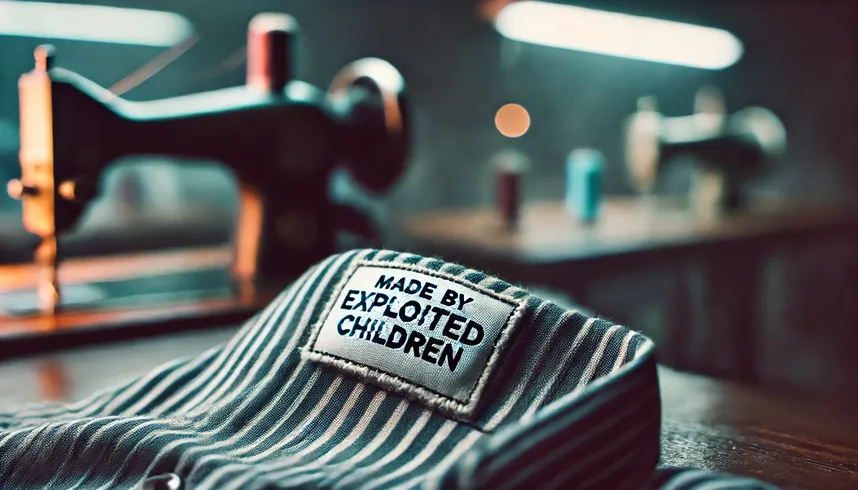Handling raw materials and processing steps - EUDR obligations using the example of paper products & disposable aprons

04.02.2026 • Reading time: 8 Min
Handling raw materials and processing steps - EUDR obligations using the example of paper products & disposable aprons
The responsible use of raw materials along the global supply and processing chains is becoming increasingly important as a result of the European Union's Green Deal. Since 2023, the European Regulation on the Prevention of Deforestation (EUDR) has been at the heart of this. This legal obligation affects not only traditional commodity traders or importers of wood and soy from agriculture, but also more and more companies from the paper and healthcare industries. After all, these companies place paper products, hygiene articles such as disposable aprons and other end products containing wood on the market. The question of the extent to which paper products and processed products are subject to notification under the EUDR is currently one of the most discussed topics in the area of compliance and supply chain management. This technical article examines the requirements of the EUDR for paper products and disposable aprons in all their complexity. In focus: Which raw materials are affected, how does the processing chain play a role, what significance do CN items have and what do the European Commission's FAQs say? The article offers companies an analysis and recommendations for action in order to implement reporting obligations in a legally compliant manner and minimize risks in the supply chain.
EUDR for used goods - What applies to used tires and pallets?

04.02.2026 • Reading time: 8 Min
EUDR for used goods - What applies to used tires and pallets?
Since the EU Deforestation Regulation (EUDR) came into force, companies that trade in wood, rubber or their products have faced new challenges - especially when dealing with used goods. While the debate has so far focused on new products, the status of second-hand items such as truck tires or wooden pallets is increasingly causing uncertainty: do they also have to comply with the EUDR requirements? This article clarifies how the EUDR classifies used goods and when the regulation applies to used products. It also provides practical tips for companies when dealing with these goods.
Special cases explained: Letters, brochures, flyers - what falls under "correspondence"?

04.02.2026 • Reading time: 7 Min
Special cases explained: Letters, brochures, flyers - what falls under "correspondence"?
With the entry into force of the EU Deforestation Regulation (EUDR), one topic is increasingly becoming the focus of companies in a wide range of industries: The classification and handling of paper products with regard to their regulatory classification. With regard to paper, the EUDR exemption, the so-called "correspondence" exemption, raises numerous practical questions. Companies that regularly use or clear letters, brochures, flyers or similar paper products are often faced with the challenge of correctly assigning them to product groups. This is because errors in classification can have serious consequences for compliance, logistics and, last but not least, for the obligation to provide evidence in the European Single Market. This is not only about the legally compliant implementation of the new regulations, but also about demarcation issues: What exactly is considered correspondence within the meaning of the EUDR? Which paper products benefit from the exemption and to what extent are brochures, flyers or advertising material, for example, affected? This article takes a practical look at the criteria and background to the EUDR correspondence exemption, distinguishes it from advertising materials and provides specific recommendations for action.
Special cases for materials: Bamboo and cardboard packaging under the EUDR - What applies?

04.02.2026 • Reading time: 8 Min
Special cases for materials: Bamboo and cardboard packaging under the EUDR - What applies?
With the entry into force of the EU Deforestation Regulation (EUDR), the economy is facing a number of new challenges: Companies that import, market or export certain raw materials must fulfill strict due diligence obligations in order to prove that their products are not associated with deforestation or forest degradation. While the requirements for classic wood products or certain agricultural raw materials such as coffee and soy are comparatively clear, the specific application of the regulations in some special material cases creates uncertainty. Practical questions are increasingly arising, particularly when it comes to bamboo and cardboard or paper packaging: How are materials not explicitly mentioned to be classified? Which products are actually affected by the EUDR - and where do exceptions apply? The following article provides sound, practical guidance on the special cases of bamboo and cardboard packaging under the EUDR. It introduces the legal basis, explains the botanical and customs classification, sheds light on the legal gray area surrounding paper packaging and provides specific recommendations for companies. The article is therefore aimed at specialists and managers from compliance, purchasing, product management and supply chain management who are responsible for implementing the EUDR requirements - and who rely on clear, reliable classifications for materials such as bamboo or cardboard in their day-to-day business.
Sale and processing of intermediate products: Do all steps have to be documented?

04.02.2026 • Reading time: 8 Min
Sale and processing of intermediate products: Do all steps have to be documented?
The EU regulation against deforestation (EUDR) presents companies with new challenges - especially when raw materials are not traded directly as end products but are processed into intermediate products beforehand. Whether cocoa mass, flour, chipboard or vegetable oil: the EUDR also requires complete traceability back to the origin of the raw materials used at these stages of the value chain. But what exactly does this mean in practice? Which processing steps must be documented? And when does a new due diligence obligation begin? This article provides a comprehensive overview of how companies can deal with intermediate products and bulk batches in accordance with the EUDR - practical, risk-oriented and with concrete recommendations for more legal certainty and efficiency.
Geodata in the EUDR: Why it is the key to compliance

04.02.2026 • Reading time: 8 Min
Geodata in the EUDR: Why it is the key to compliance
The EU regulation on deforestation-free supply chains (EUDR) will apply from the end of 2025. It obliges companies that import raw materials such as soy, coffee, palm oil or wood into the EU to provide precise geodata on the areas under cultivation. These geo-coordinates - often together with an EUDR reference number - are crucial for complying with the requirements and ensuring deforestation-free products. Retailers must also be able to trace their goods back to the area of origin. This presents many with technical, legal and organizational challenges - especially if they do not have direct access to the necessary data themselves. This article shows how companies and retailers can act in compliance with EUDR with practical solutions and clear recommendations - efficiently, legally compliant and future-proof.
EUDR and the "cut-off date": How to deal with goods in stock and later placing on the market?

04.02.2026 • Reading time: 8 Min
EUDR and the "cut-off date": How to deal with goods in stock and later placing on the market?
With the EU regulation on deforestation-free supply chains (EUDR) coming into force, logistics, production planning and stock levels are coming under greater scrutiny. The deadline raises key questions, particularly for companies with goods in stock. The cut-off date defines the date from which certain products may only be placed on the market if due diligence obligations have been met. Many of the products concerned were manufactured long before this date. The aim of this article is to explain the legal requirements of the EUDR with regard to the cut-off date, to highlight the challenges of keeping records and stock levels and to provide practical recommendations for action.
Self-consumption, self-import, interim solution - when does the EUDR apply and when does it not?

11.07.2025 • Reading time: 10 Min
Self-consumption, self-import, interim solution - when does the EUDR apply and when does it not?
Since the European Deforestation Regulation (EUDR) came into force, many companies have faced new challenges - not only large trading groups, but also smaller companies that import or use raw materials such as coffee, cocoa, soya, wood, cattle, palm oil or rubber. The regulation goes further than it seems at first glance: it applies not only to trade, but also when deforestation-free products are imported from abroad solely for the company's own use, for example for the canteen, office, production or training courses. Companies that have previously operated purely locally or in-house are confronted with new questions. Does the EUDR also apply if there is no direct resale? And how should complex supply chains, intermediate products or shipping via third countries be handled? In this article, we shed light on when the EUDR applies - also with regard to self-consumption, self-import and intermediate solutions - and where the regulation leaves room for maneuver or requires interpretation.
Forest, agricultural land and the legal definition: When does an area fall under the EUDR?

11.07.2025 • Reading time: 7 Min
Forest, agricultural land and the legal definition: When does an area fall under the EUDR?
The tightening of global climate policy and the increasing demands for sustainable corporate governance are presenting companies in the European Union with new challenges. Above all, the EU regulation against deforestation, the so-called European Union Deforestation Regulation (EUDR), plays a key role. When the EUDR comes into force, European and international supply chains will be put to the test - especially when it comes to products from forest and agricultural areas. The core objective of the EUDR is to prevent the import, trade and distribution of products on the EU internal market that have been produced on areas that have been unjustly deforested. The aim is to reduce forest degradation. This places the origin - the "land origin" - of raw materials such as soya, palm oil, wood, coffee or cocoa more at the heart of corporate due diligence obligations. A major stumbling block for companies is the *EUDR forest definition*, which is based on national and international boundaries, but is broader than many market participants have previously assumed. What actually counts as a "forest" under the EUDR? When does an area used for agricultural purposes fall under the requirements for freedom from deforestation? The following article discusses how forests, agricultural land and various types of use are to be assessed under the EUDR.
Natural or synthetic rubber? What the EUDR requires and how to ensure the correct classification

20.06.2025 • Reading time: 8 Min
Natural or synthetic rubber? What the EUDR requires and how to ensure the correct classification
With the entry into force of the EU regulation on the deforestation-free supply chain (EUDR - European Union Deforestation Regulation), companies along global supply chains are faced with far-reaching obligations. This also brings the correct EUDR classification of rubber products into focus: companies must determine whether their products fall under the requirements of the regulation. Those who trade, produce or process rubber, elastomers or rubber products are particularly affected. The exact classification determines documentation obligations and risks. The distinction between natural rubber (e.g. raw rubber obtained from hevea trees) and synthetic rubber (petrochemically produced polymers) is therefore coming into focus: anyone placing natural rubber or goods made from it on the European market or importing it from December 30, 2025, must comply with strict obligations to provide evidence of origin and sustainability. In the following article, you will find practical instructions on how to make the distinction between natural and synthetic rubber transparent, classify your products in a legally compliant manner and minimize compliance risks in international trade.
Group structures and SMEs - What thresholds apply under the EU Deforestation Regulation?

23.06.2025 • Reading time: 8 Min
Group structures and SMEs - What thresholds apply under the EU Deforestation Regulation?
With the EU Deforestation Regulation (EUDR, Regulation (EU) 2023/1115), the European Union has introduced an important rule to make the import and trade of products in the EU more environmentally friendly and sustainable. The EUDR imposes various obligations not only on large multinational corporations, but also on small and medium-sized enterprises (SMEs) and complex groups of companies. In practice, this leads to numerous uncertainties, particularly with regard to the delimitation of responsibilities and obligations within group structures and SMEs. The correct application of the EUDR thresholds and an understanding of the specific obligations, also with regard to EUDR turnover limits, are crucial for legally compliant implementation and efficient integration of the EUDR requirements.
EUDR country benchmarking: How the EU will assess risk in countries of origin in future - and what this means for companies

10.07.2025 • Reading time: 9 Min
EUDR country benchmarking: How the EU will assess risk in countries of origin in future - and what this means for companies
With the EU Regulation against Deforestation (EUDR), the European Union is tightening the requirements for companies that import or trade in deforestation-relevant raw materials such as soy, coffee, palm oil, cocoa, beef, wood or rubber. A key instrument is the planned country benchmarking system: in future, it will classify countries of origin according to their deforestation risk and thus help companies to implement their due diligence obligations on a risk-based basis. Although the system is still under development, it is already clear that the future classification will have a concrete impact on due diligence processes. This article explains how benchmarking works, what criteria the EU is applying and how companies can make strategic preparations today.
SAI360 Acquires Lawcode to Disrupt U.S. Legacy Whistleblower Hotline Market

10.07.2025 • Reading time: 2 Min
SAI360 Acquires Lawcode to Disrupt U.S. Legacy Whistleblower Hotline Market
SAI360 acquires German-based Lawcode GmbH, bringing one of Europe's most advanced whistleblower platforms, Hintbox, to the US market. The acquisition is more than a strategic expansion: it marks the beginning of a new era for digital whistleblowing systems in the US, which must meet the highest standards of security, data protection and user-friendliness.
EUDR compliance for composite products - when and to what depth must testing be carried out?

03.07.2025 • Reading time: 7 Min
EUDR compliance for composite products - when and to what depth must testing be carried out?
The requirements and adherence to EUDR compliance are currently occupying numerous companies from a wide range of industries. Those that work with complex product groups and mixtures of raw materials are particularly affected. Composite products in particular are at the top of the agenda, as it is often unclear at first glance which testing obligations actually apply and how deeply the supply chain must be traced and tested in accordance with the EU Deforestation Regulation. The combination of different materials and raw materials in a single end product in particular often causes uncertainty. The global, multi-layered supply chain also presents companies with new challenges. This article provides a classification for companies, product managers, purchasers and compliance officers.
EUDR and packaging: When are packaging, displays and instructions covered by the regulation?

02.07.2025 • Reading time: 9 Min
EUDR and packaging: When are packaging, displays and instructions covered by the regulation?
The new EU regulation to combat global deforestation - the European Union Deforestation Regulation (EUDR) - places new obligations on companies. There is currently a lot of uncertainty, particularly in the areas of packaging, displays and instructions for use: Does the regulation also apply to outer packaging? Are paper-based instructions and advertising materials affected? What evidence and due diligence obligations must be complied with? In this article, you will find out when packaging, product instructions, POS displays and other printed products fall under the EU regulation. We will show you how different types of packaging and accompanying materials are classified, where there are exceptions and how you can safely implement the requirements of the EUDR.
Batches, deliveries and the practical implementation of DDS in the EUDR

03.07.2025 • Reading time: 9 Min
Batches, deliveries and the practical implementation of DDS in the EUDR
With the EU regulation on deforestation-free supply chains (EUDR), the European Union has established new standards for traceability and documentation requirements. Companies that place products such as wood, soya, coffee, cocoa, palm oil, cattle or rubber - as well as their derived products - on the EU market or export them must submit comprehensive due diligence statements (DDS) from the end of 2025. The central aim is to ensure complete traceability back to the parcel of origin and the import of deforestation-free products. In practice, the implementation of the EUDR repeatedly raises questions. There is often uncertainty as to whether each goods receipt or delivery requires separate DDS documentation. It is also often unclear how to deal with collective batches or loosely stored materials. The complexity of the DDS becomes particularly clear when it comes to correctly establishing the link between batches, delivery documents and due diligence declarations. This article explains why batches and deliveries play an important role in EUDR.
Due diligence obligations along the supply chain - who has to do what and when?

03.07.2025 • Reading time: 10 Min
Due diligence obligations along the supply chain - who has to do what and when?
The EU regulation on deforestation-free supply chains (EUDR) marks a paradigm shift in sustainability regulation: the focus is no longer just on raw material importers, but on the entire supply chain. The EUDR obligations are also increasingly affecting downstream market participants and retailers - with far-reaching consequences, especially for SMEs. But who is actually affected? What documentation and risk analysis obligations apply? And how can you determine your own role in terms of the EUDR with legal certainty? This article brings clarity to the complex requirements of the EUDR for traders and market participants. We show how responsibilities are distributed along the supply chain, what obligations exist and how companies can make their processes efficient and compliant - including examples, recommendations and specific implementation tips.
EUDR and the importance of HS and TARIC codes - What companies need to know now

12.06.2025 • Reading time: 7 Min
EUDR and the importance of HS and TARIC codes - What companies need to know now
The EU Deforestation Regulation (EUDR) has a significant impact on international trade and supply chains. For companies that import or export products, the correct classification and declaration of goods is essential. The Harmonized System (HS) codes of the World Customs Organization and the TARIC codes play a key role here. These codes not only determine the tax and customs status of goods, but are also largely responsible for compliance with EUDR regulations. An incorrect declaration can have far-reaching consequences, including legal sanctions and delays in the delivery process. Why is the correct classification of goods central to the EUDR? The EUDR aims to counteract deforestation and the associated environmental degradation. Companies are required to be transparent in the sourcing and trading of goods to ensure that they do not contribute to deforestation. Accurate classification of goods through HS and TARIC codes is crucial as it forms the basis for traceability and reporting. These codes help to determine the origin and environmental footprint of products, which in turn ensures compliance with the EUDR. This article provides a comprehensive overview of the importance of HS and TARIC codes in the context of the EUDR. Companies should use this information to better understand the role of goods classification in meeting legal requirements. The functions of the codes are explained and practical tips on correct classification are provided. The aim is to enable companies to optimize their compliance measures and thus assume their responsibility towards the environment.
Whistleblower Protection Act - Information and news

21.05.2025 • Reading time: 17 Min
Whistleblower Protection Act - Information and news
The Whistleblower Protection Act (HinSchG) is a central component of efforts to strengthen transparency and integrity in companies. It ensures that employees who report violations of legal provisions or internal company regulations are protected from reprisals and discrimination. Law-abiding companies benefit from solid whistleblowing systems, as they can identify risks at an early stage and thus prevent legal consequences and reputational damage. Updates under the HinSchG include the obligation to set up internal reporting points and staff training to ensure the long-term *protection* *of whistleblowers*. By implementing these requirements, companies not only emphasize their compliance, but also actively contribute to promoting an ethical corporate climate.
VSME standards revolutionize sustainability reporting for SMEs

25.03.2025 • Reading time: 8 Min
VSME standards revolutionize sustainability reporting for SMEs
The Corporate Sustainability Reporting Directive (CSRD) poses particular challenges for small and medium-sized enterprises (SMEs). High bureaucratic hurdles make it difficult to meet the new sustainability reporting requirements. To alleviate these difficulties, the omnibus draft was presented in February 2025 with the aim of simplifying the implementation of the CSRD. In this context, the VSME standard (Voluntary Standard for SMEs) is also gaining in importance. The approach offers SMEs an alternative to make their reporting efficient and legally compliant. In this article, you will find out how you can benefit from simplified sustainability reporting through the VSME standards, what the main differences to the ESRS are and what steps are necessary to prepare for the introduction.
EUDR requirements at a glance: What to do now as a sustainability manager

07.05.2025 • Reading time: 5 Min
EUDR requirements at a glance: What to do now as a sustainability manager
The EU Deforestation Regulation (EUDR) represents a challenge for sustainability managers in companies. At the same time, it is an important step forward as it emphasizes the importance of avoiding deforestation and degradation in supply chains. This regulation obliges companies to critically review their supply chain processes and ensure that their practices are in line with European sustainability goals.
Circular economy: sustainable growth and resource conservation

15.01.2025 • Reading time: 16 Min
Circular economy: sustainable growth and resource conservation
The circular economy is becoming increasingly important in today's business landscape. At the heart of this economic model is the maximization of resource efficiency by minimizing waste and promoting the reuse and recycling of materials. This is in stark contrast to the traditional linear economy, which relies on a 'take-make-dispose' model. For companies, the shift to a circular economy opens up new opportunities to not only achieve environmental sustainability, but also economic benefits through innovative business models. In this article, we give you a comprehensive overview of the principles of the circular economy, highlight the benefits and explain how companies can successfully transition to this model to operate in line with current economic and environmental challenges.
Emissions scopes at a glance: the GHG Protocol and scope categories 1-3

03.12.2024 • Reading time: 19 Min
Emissions scopes at a glance: the GHG Protocol and scope categories 1-3
Climate change is one of the greatest challenges of our time and requires companies to act responsibly. At the heart of this responsibility is an understanding of the greenhouse gas emissions that contribute significantly to global warming. The GHG Protocol provides a structured framework to classify these emissions into three categories - Scopes 1, 2 and 3. In this article, we will shed light on the importance of these emissions scopes for companies, explain their respective characteristics and show how the correct quantification of emissions not only helps to comply with regulatory requirements, but also opens up opportunities to reduce CO₂ emissions. Let's dive into the world of emissions measurement together and find out how your company can actively contribute to climate protection.
CBAM - How companies are setting the course for a greener world with the CO₂ border adjustment system

25.11.2024 • Reading time: 13 Min
CBAM - How companies are setting the course for a greener world with the CO₂ border adjustment system
The Carbon Border Adjustment Mechanism (CBAM) is an important step in EU climate policy. Its aim is to regulate CO₂ emissions from imported goods. Developed as part of the EU Green Deal, the carbon border levy combats the problem of carbon leakage. This means that companies in Europe should be able to compete fairly. For business leaders and people who care about the environment, CBAM brings both opportunities and challenges in our global economy. In this article, we look at how the mechanism works, what effects it has on different industries and why it is important for a sustainable future.
ESG investments, ESG ratings & ESG scores: an overview

18.07.2024 • Reading time: 6 Min
ESG investments, ESG ratings & ESG scores: an overview
ESG investments are becoming increasingly important in the financial world. But what does this term actually mean? ESG stands for environment, social and governance and describes sustainable investment strategies that not only take into account returns, but also social and ecological aspects. In our article, we take a detailed look at the emergence and development of ESG investments, highlight their advantages and disadvantages and discuss risks and challenges. Why are ESG investments so important today? How does the principle of ESG investing work and what advantages does it offer? You can find an overview of everything you need to know here.
NIS2: Supply chains and IT security
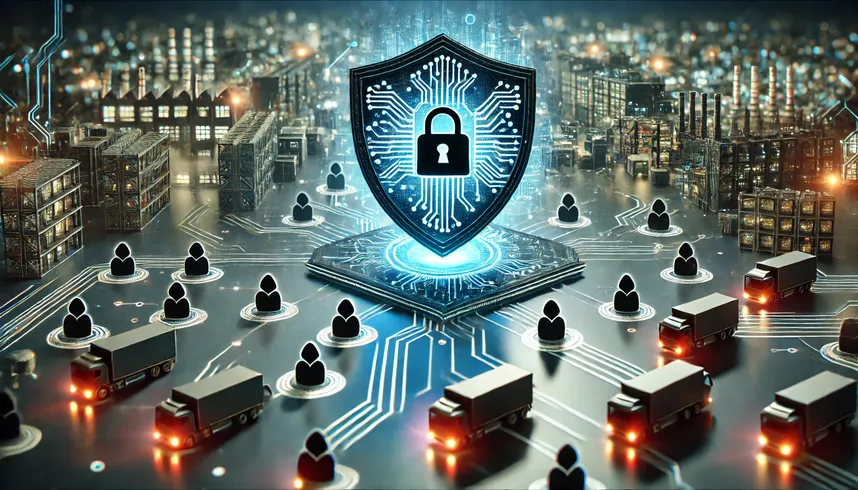
17.07.2024 • Reading time: 11 Min
NIS2: Supply chains and IT security
In the depths of the digital world lurk invisible dangers that can threaten companies of all sizes and industries alike. The NIS2 Directive introduces important requirements for operators of critical infrastructure and key assets to strengthen cyber security. The implementation of these measures is particularly important for companies in important sectors to effectively arm themselves against cyber threats. The German Federal Office for Information Security (BSI) is playing a key role in helping companies comply with the NIS2 Directive. In our blog post on the NIS2 Directive, we provide you with a comprehensive overview of current developments, including the German implementation and its current status, as well as the requirements in the area of cyber security. The directive marks a significant step towards strengthening digital security in Europe and affects companies across all industries. Find out how you can effectively prepare your company for the challenges ahead and successfully implement the requirements of the directive.
The Non-Financial Reporting Directive (NFRD)

17.06.2024 • Reading time: 9 Min
The Non-Financial Reporting Directive (NFRD)
The NFRD affects many companies in the EU and imposes specific reporting requirements. But what exactly does this mean for your company? What legal requirements must be met? And how do you prepare an NFRD-compliant report? In this blog article, we give you a comprehensive overview of the NFRD, explain the key differences to the new CSRD (Corporate Sustainability Reporting Directive) and offer practical tips for implementation. Find out which companies are affected by the Non-Financial Reporting Directive, what information must be disclosed and how you can meet the requirements efficiently. Use this guide to optimally prepare for the requirements of the NFRD and take advantage of the benefits of transparent and sustainable reporting. We explain, what you need to know about the non-financial reporting directive.
EU Deforestation Regulation (EUDR)

05.06.2024 • Reading time: 12 Min
EU Deforestation Regulation (EUDR)
In the middle of a dense forest of rules and regulations under EU law: the EUDR. The EU Deforestation Regulation (EUDR/VO 2023/1115) introduces new requirements for companies along the supply chain of timber and forest products. This requires affected companies to comprehensively review their supply chains and implement effective measures to ensure compliance with the strict requirements. In particular, transparency and traceability are crucial to ensure that products are manufactured without deforestation and comply with all legal requirements. Companies are therefore faced with the challenge of reviewing and, if necessary, adapting their procurement practices to meet the requirements of the EUDR. It is crucial that companies start implementing the required measures early to avoid potential risks and sanctions while contributing to forest protection and sustainable development. In our blog post, you will get an overview of all the important topics of this regulation, its implications and how companies can prepare for the new due diligence requirements.
ESG reporting: a comprehensive guide

04.06.2024 • Reading time: 10 Min
ESG reporting: a comprehensive guide
ESG reporting is an essential component of modern corporate management that makes the environmental, social and governance-related aspects of a company transparent. Companies are placing increasing emphasis on ESG reporting in order to communicate their sustainability efforts transparently and thus strengthen the trust of their stakeholders. But what exactly is behind this term and why is it so important for companies to address it? Compliance with ESG standards not only helps to minimize risk, but can also open up new business opportunities and promote long-term growth. By using recognized frameworks such as GRI, TCFD and SASB, companies can produce structured and meaningful ESG reports that meet the needs of different stakeholders. This guide provides you with a comprehensive overview of the basics of ESG reporting, the most important frameworks and standards, and practical tips for preparing an ESG report. We also shed light on regulatory requirements and offer insights into the challenges and best practices in ESG reporting. Read more about ESG reporting now and find out how you can position your company to be sustainable and future-oriented.
Double materiality: all you need to know
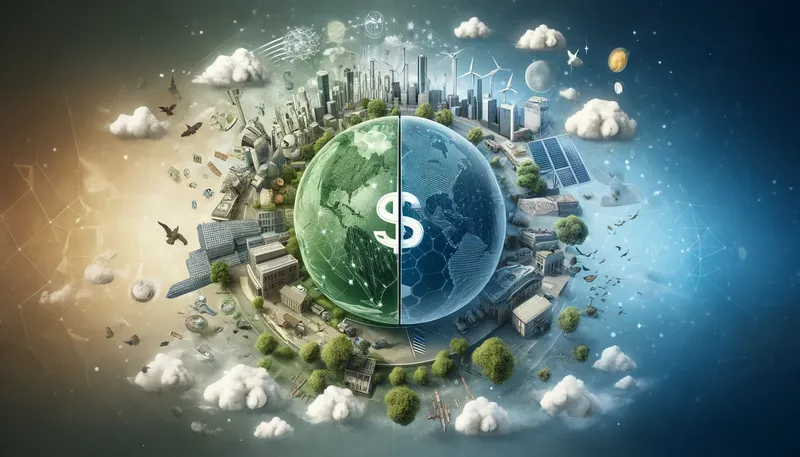
29.05.2024 • Reading time: 7 Min
Double materiality: all you need to know
What is double materiality in corporate reporting all about? In our article, we not only explain the concept of dual materiality, but also look at how it helps companies to optimize their reporting and paint a more complete picture of their environmental and social impact. Dual materiality is a key concept in sustainability reporting. It helps companies to integrate not only economic, but also social and environmental aspects into their reports. By considering this dual dimension, companies can convey a comprehensive picture of their social and environmental footprint. This holistic approach enables companies to report transparently on their activities while demonstrating their commitment to sustainability. Learn how considering both external and internal materiality helps companies paint a complete picture of their environmental and social impact, why dual materiality enhances transparency and trust, and how it contributes to long-term sustainability and business success. All you need is this article: you get to know all about double materiality at one glance.
Greenwashing: recognizing fake sustainability in companies

27.05.2024 • Reading time: 12 Min
Greenwashing: recognizing fake sustainability in companies
Increasing environmental awareness among consumers means that environmental and social aspects are becoming ever more important in purchasing decisions. Sustainability has developed into a convincing sales argument. Companies emphasize their social commitment or advertise products as particularly environmentally friendly. Greenwashing is a term that is becoming increasingly important in the business world and is often used in connection with environmental compatibility. Companies like to present themselves as sustainable and environmentally conscious, but how can you tell the difference between real sustainability and fake sustainability? According to a study by TerraChoice, 95% of environmental product claims use misleading or inaccurate information. Greenpeace's 2023 report also shows that 63% of products advertised as 'green' do not actually meet sustainability standards. In our blog post, we explore the question of what greenwashing means, how companies can recognize it and what measures they should take. All you need to know about recognizing greenwashing in companies, you can find in our article.
Supplier evaluation and selection: Criteria and methods
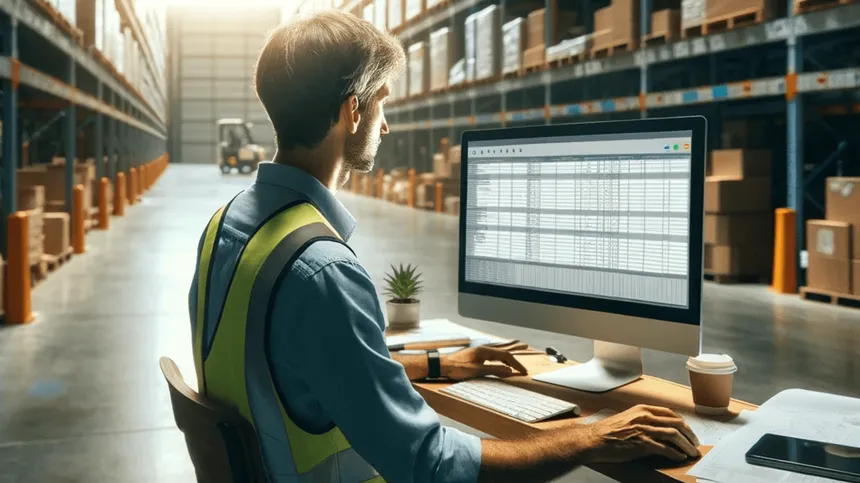
03.05.2024 • Reading time: 10 Min
Supplier evaluation and selection: Criteria and methods
Choosing the right suppliers is crucial to running a successful business. This selection not only affects the quality and reliability of the products or services, but can also improve the way the company operates and lead to strong and lasting business relationships. But how do you find the optimal suppliers that perfectly match your company's needs and values? Today, companies face many challenges when evaluating and selecting their suppliers. The market is changing rapidly, customers expect more and more, supply chains are becoming more complicated and regulations are becoming stricter. A good supplier evaluation can help companies identify potential difficulties early on, ensure high product quality, reduce costs sensibly and adhere to legal rules. Well-organized supplier relationship management is necessary to achieve long-term economic success and grow the business. In our article, we take an in-depth look at how to evaluate and select suppliers. The aim is to provide you with useful knowledge and concrete advice. We explain how a planned approach helps to achieve business goals and grow the company continuously.
Focus on sustainability: the importance for companies

03.05.2024 • Reading time: 8 Min
Focus on sustainability: the importance for companies
Nowadays, sustainability is an important topic in the corporate world. But what does "sustainability" actually mean and what ideas are behind it? In this blog article, we take a closer look at what sustainability means, its basic principles and why it is so important for businesses. You will understand that longevity is more than just a trend; it is fundamental to the long-term success and good standing of businesses. From its beginnings in 18th century forestry to the important Brundtland Commission and the UN's big goals for 2030, this article focuses on how important sustainability is to our society and economy around the world. Acting sustainably is not only necessary, but also offers the opportunity to create a fairer and better future.
Implementing sustainable procurement

17.04.2024 • Reading time: 5 Min
Implementing sustainable procurement
Environmental protection and social responsibility are becoming increasingly important. Sustainable procurement therefore offers companies a great opportunity to act more sustainably and thus contribute to environmental protection. This is not just about reducing their own ecological footprint, but also about supporting ethical supply chains. In our article, we explain how companies can achieve high environmental and social standards by carefully selecting suppliers and materials. We also show how this can strengthen the brand and how they can contribute to the sustainability of the global economy. How do you successfully implement green procurement step by step and how do you deal with challenges? Find out more in this article.
German Sustainability Code (DNK): a compass for sustainable business practices

15.04.2024 • Reading time: 7 Min
German Sustainability Code (DNK): a compass for sustainable business practices
The German Sustainability Code, or DNK for short, is a guideline for companies to show how sustainably they operate. This code was created in 2011 and is part of the European CSR Directive. In Germany, companies do not necessarily have to comply with the German Sustainability Code. Although it is voluntary, it is still important for companies to report on their sustainability efforts. This is the only way they can show that they are operating in an environmentally conscious and responsible manner. In this article, we explain what the Sustainability Code is and why it can be useful for companies. The Code is an important tool for companies to prepare for a future in which sustainable business practices will become increasingly important, as it shows how companies can act more sustainably. Our article gives you an overview of how the Code is structured and what is expected of companies.
Environmental pollution: effects and countermeasures

11.04.2024 • Reading time: 16 Min
Environmental pollution: effects and countermeasures
In today's world, which is characterized by global challenges, the right to a healthy environment is becoming increasingly important. Our livelihoods and the future of generations to come depend largely on an intact ecosystem. However, the reality is that pollution continues to pose a serious threat to our livelihoods. From air pollution and soil contamination to pollution of the oceans - the effects are manifold and affect us all. Especially in times of climate change and global warming, the urgency of taking action to protect our environment is becoming ever more apparent. Alarming signals in this context are, for example, the loss of biodiversity and the destruction of natural habitats, which make it clear that there is an urgent need to rethink our approach to nature. This article analyzes different types of pollution, discusses their impact on people and nature, and examines the role of climate lawsuits and other measures to enforce environmental protection measures and reduce environmental pollution.
ESRS: The European Sustainability Reporting Standards

09.04.2024 • Reading time: 8 Min
ESRS: The European Sustainability Reporting Standards
The introduction of the European Sustainability Reporting Standards (ESRS) not only increases transparency for investors, stakeholders and the public, but also promotes more sustainable corporate governance and strategy. By specifying criteria and indicators for reporting, the ESRS enable a more efficient assessment and better comparability of companies' ESG performance. The ESRS also support the EU in achieving the goals of the Green Deal and the 2030 Agenda for Sustainable Development. Companies that commit to the ESRS can also better identify potential risks and opportunities related to sustainability and improve their market position and competitiveness in the long term.
CO2 footprint: significance and strategies for reduction

09.04.2024 • Reading time: 10 Min
CO2 footprint: significance and strategies for reduction
In today's world, awareness of sustainability is more important than ever. Companies and individuals are increasingly aware of the impact of their actions on the environment and recognize the urgency of taking action to reduce their environmental footprint. A key aspect of these efforts is the carbon footprint, which measures the amount of carbon dioxide emissions caused by certain activities. But what exactly is behind this term, and why is it important for companies and individuals alike? In this blog post, we will get to the bottom of these questions and show how both companies and individuals can reduce their carbon footprint in order to make a positive contribution to environmental protection. You will learn about the significance and strategies for reducing your own CO2 footprint.
SFDR: Guide to the Sustainable Finance Disclosure Regulation

20.03.2024 • Reading time: 6 Min
SFDR: Guide to the Sustainable Finance Disclosure Regulation
The SFDR, also known as the Disclosure Regulation, presents companies with a challenge: the disclosure of sustainable information is becoming increasingly important. As part of the EU Sustainable Finance Framework, the regulation aims to link private investment with sustainability. In practice, this means that the regulation ensures that investors have access to the relevant information to enable sustainable investing. The background to this endeavour is the EU's action plan with the goal of a climate-neutral Europe by 2050. The Disclosure Regulation is relevant in that transparency, long-termism and sustainability in the financial world are to be harmonized under its umbrella. At the same time, the danger of greenwashing is to be reduced and prevented. The regulation is expected to have a positive impact on the integration of ESG criteria into the investment process and contribute to a more sustainable economy in the long term. This blog post highlights everything you need to know on the topic: the impact of the Sustainable Finance Disclosure Regulation, key terms and their meaning, as well as challenges and opportunities that arise for you from its application.
Sustainable Development Goals (SDGS): 17 goals for sustainable development

07.03.2024 • Reading time: 7 Min
Sustainable Development Goals (SDGS): 17 goals for sustainable development
The United Nations' Sustainable Development Goals (SDGs) represent an ambitious plan for a sustainable future. With a total of 17 goals, they cover a wide range of topics, from combating poverty and protecting the environment to promoting education. These goals not only provide us with a clear vision for a better future, but also show that together, as a global community, we can make a difference. By taking a closer look at each of the SDGs, we can better understand why they are crucial to the prosperity of us all. In our upcoming blog article, we will take a closer look at each of the 17 goals and explain their impact and importance for sustainable development.
All informations on the EU taxonomy summarised
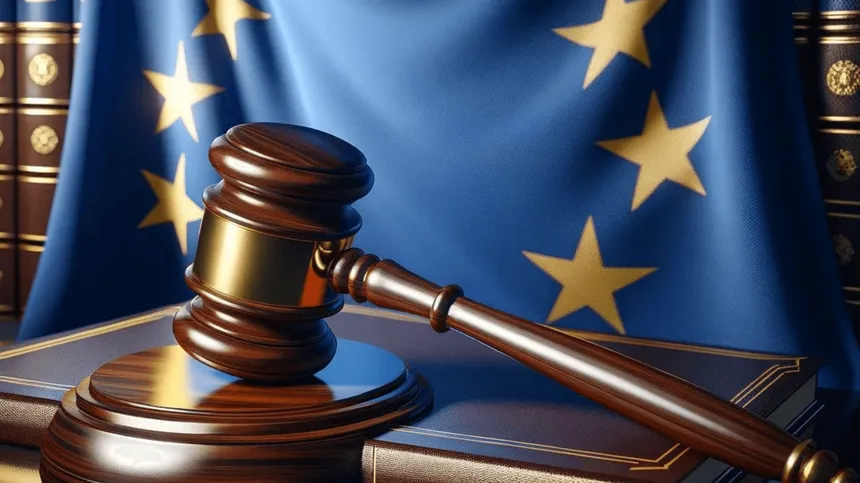
06.03.2024 • Reading time: 6 Min
All informations on the EU taxonomy summarised
The EU taxonomy defines clear environmental targets for companies and helps them to implement them. With this regulation, the EU aims to make a significant contribution to environmental protection and increase transparency with regard to environmental investments. The regulation was introduced to set uniform standards for environmentally friendly investments and to promote a sustainable economy. Companies must already prepare for this now, as the EU taxonomy will be mandatory for all relevant players in the European Union. It is becoming increasingly important to report on how companies are achieving their environmental goals and what they are doing to achieve them. In this article, we explain the regulation and look at which companies are affected and when they are obliged to report. In this blog post, we would like to provide an overview of the taxonomy. All informations about the EU taxonomy are summarised and well explained.
Sustainability reporting (CSRD): What you should know

21.02.2024 • Reading time: 13 Min
Sustainability reporting (CSRD): What you should know
Learn how the Corporate Sustainability Reporting Directive (CSRD) marks a significant milestone in European sustainability reporting and encourages companies to be more transparent about their environmental, social and governance aspects. In a world where sustainability is increasingly becoming a decisive factor for companies, uniform standards and extended reporting requirements are essential to increase stakeholder confidence and create long-term value. Our comprehensive guide provides you with a clear path to successfully lead your company into a sustainable future by effectively implementing CSRD and making your sustainability reporting a success. Find out everything you need to know here.
Introduction to supply chain management
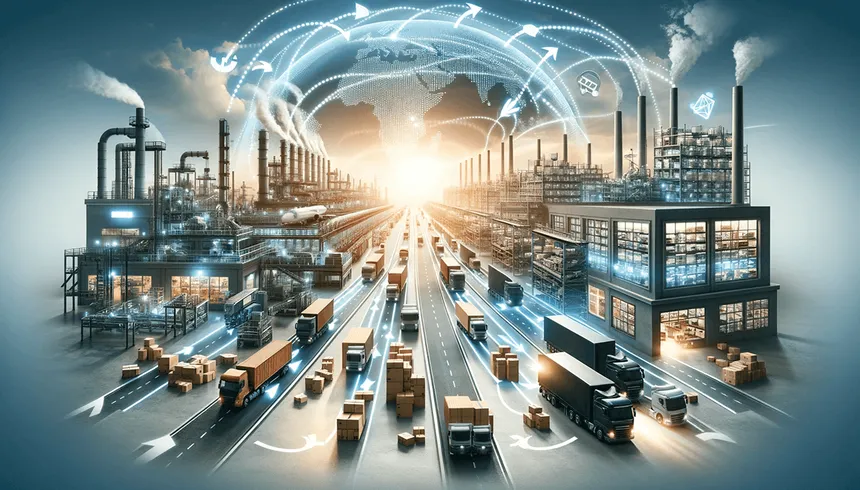
17.02.2024 • Reading time: 9 Min
Introduction to supply chain management
Supply chain management is the smart organization of all the steps that are necessary for a company's supply chain to function optimally. From product manufacturing to transportation to customer satisfaction, supply chain management is critical to a company's success. Find out how modern supply chain management not only improves supply chain operations, but also contributes to the long-term success of the company and customer satisfaction. In this article, we would like to give you a rough introduction to supply chain management.
From obligation to opportunity: Corporate Social Responsibility (CSR) in Germany

15.02.2024 • Reading time: 13 Min
From obligation to opportunity: Corporate Social Responsibility (CSR) in Germany
Corporate social responsibility, or CSR for short, is about the responsibility that companies bear. It is about how they influence society and the environment. The German government attaches great importance to this because it wants companies to get involved. There are government guidelines and even a prize for this. Another important law in this context is the Supply Chain Duty of Care Act. It is intended to encourage companies to organize their supply chains sustainably. This means that they must ensure that their products are produced in a fair and environmentally friendly way. The definition of CSR explains what corporate social responsibility means and the guidelines provide clear guidance on how companies can put this responsibility into practice. If you want to know more about sustainability actions by companies in Germany, there is a lot of information available. It is important for companies to understand the basics of CSR if they really want to take their social, environmental and economic responsibilities seriously and act sustainably.
CSDDD for companies: The most important aspects of the EU law
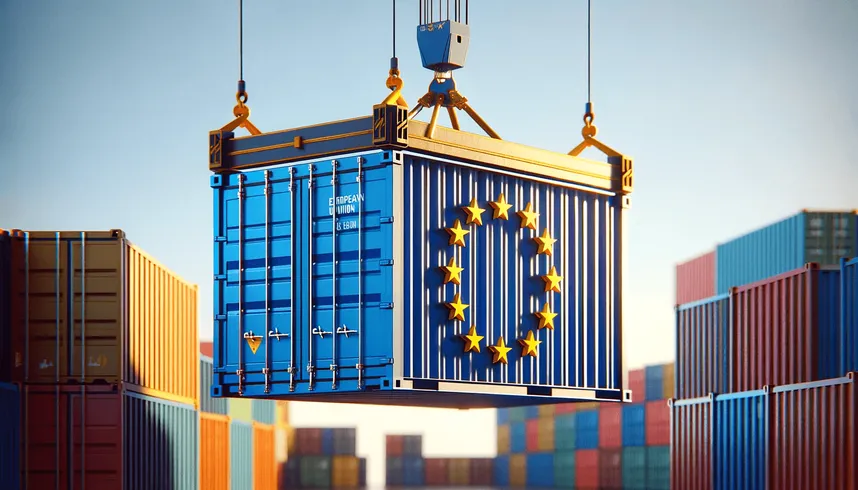
15.01.2024 • Reading time: 8 Min
CSDDD for companies: The most important aspects of the EU law
The Corporate Sustainability Due Diligence Directive (CSDDD) is part of the new EU law on supply chains that is attracting a lot of attention. This regulation requires companies to audit their supply chains to ensure that there are no human rights violations or environmental damage. Companies will soon have to prepare to meet these requirements. But what exactly does this mean? In short, companies must ensure that their suppliers and partners respect human rights and act in an environmentally friendly manner. This directive gives companies the opportunity to take responsibility and do good. In this article, we will explain the most important points of the directive in more detail. We will also explain what companies should look out for and what benefits they can derive from it.
The Supply Chain Due Diligence Act (LkSG): all you need to know
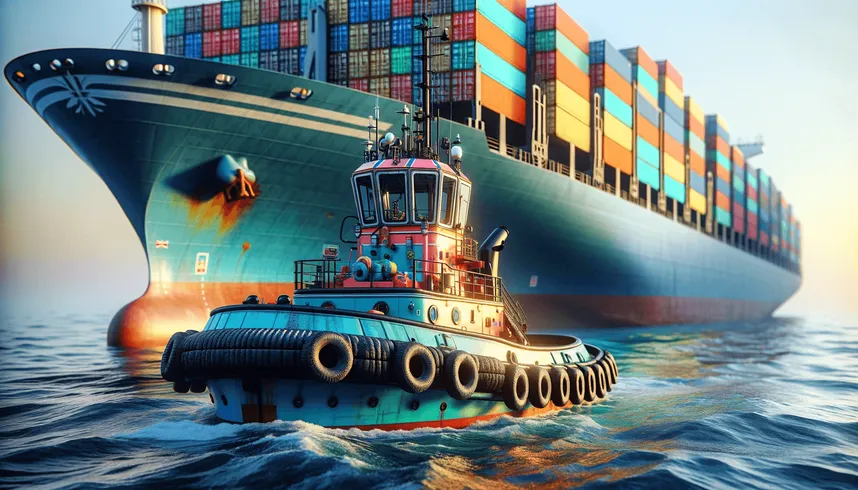
16.01.2024 • Reading time: 12 Min
The Supply Chain Due Diligence Act (LkSG): all you need to know
The Supply Chain Due Diligence Act (LkSG) for companies came into force in Germany on January 1, 2023. Since January 1, 2024, it has already applied to companies with at least 1,000 employees. The law on corporate due diligence obligations in supply chains obliges companies to take human rights and environmental standards within their value chain into account. The due diligence obligations defined in the law apply to both the business activities of companies and their suppliers. The law presents companies with the challenge of ensuring ethical standards in their supply chains. Nevertheless, implementing the law can not only improve a company's image, but also its competitiveness. In our article, we have summarized the most important points and background information on the law.
ESG: Environmental, social and governance
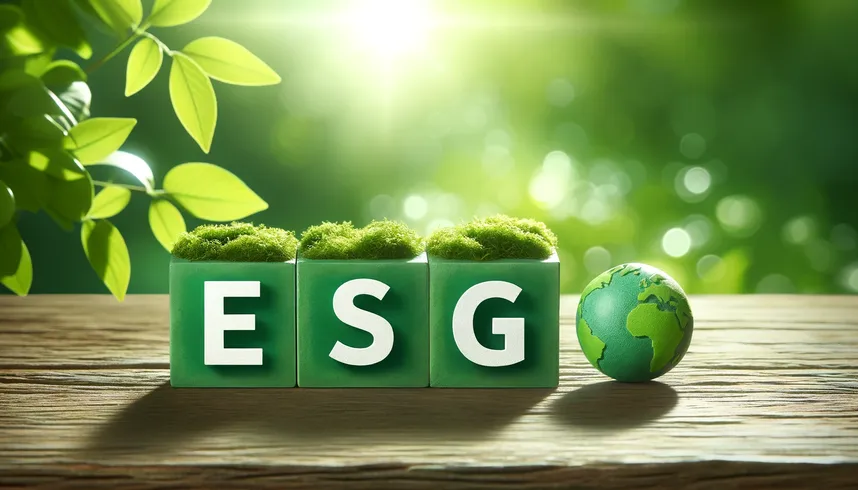
10.01.2024 • Reading time: 9 Min
ESG: Environmental, social and governance
ESG is a term that has become increasingly popular in recent years. But what does it actually mean? ESG stands for Environmental, Social and Governance and covers the areas of environmental, social and corporate governance. By successfully implementing ESG criteria, companies can not only improve their sustainability, but also strengthen their image on the market. Environment Social Governance is therefore no longer just a trend, but has become an important part of the sustainability strategy. In this article, we will examine the importance of environmental, social and governance and the role of companies in promoting sustainable development.
